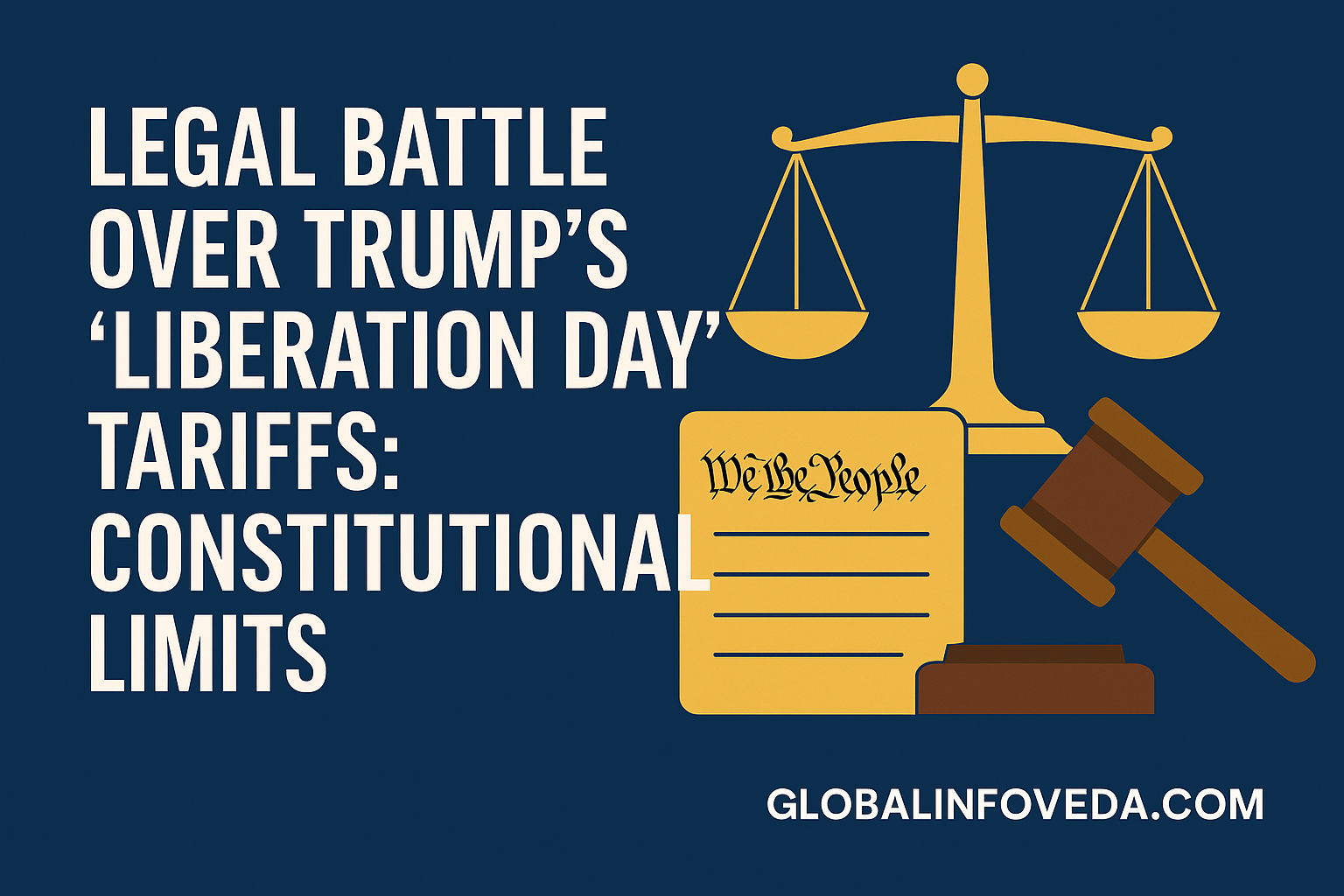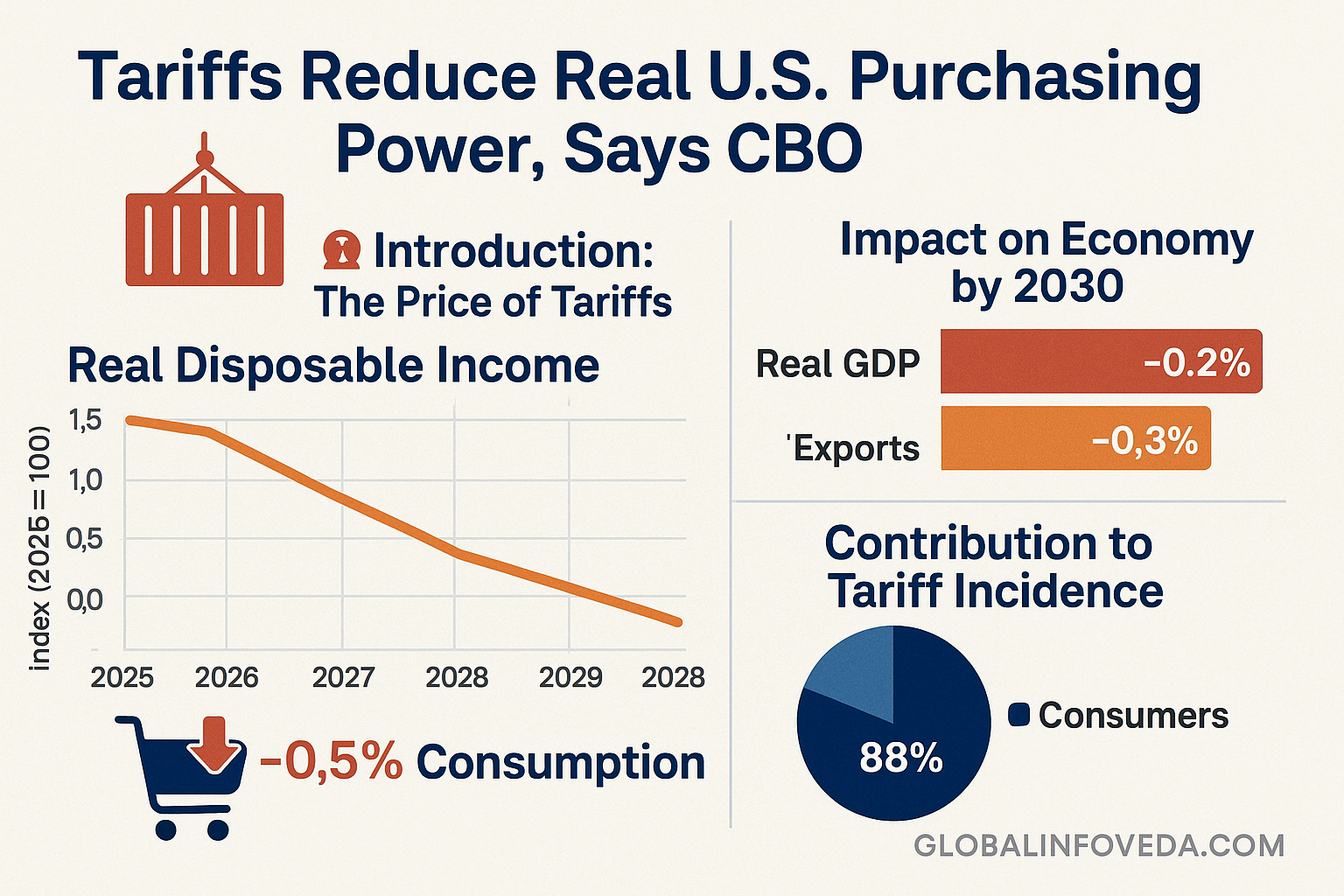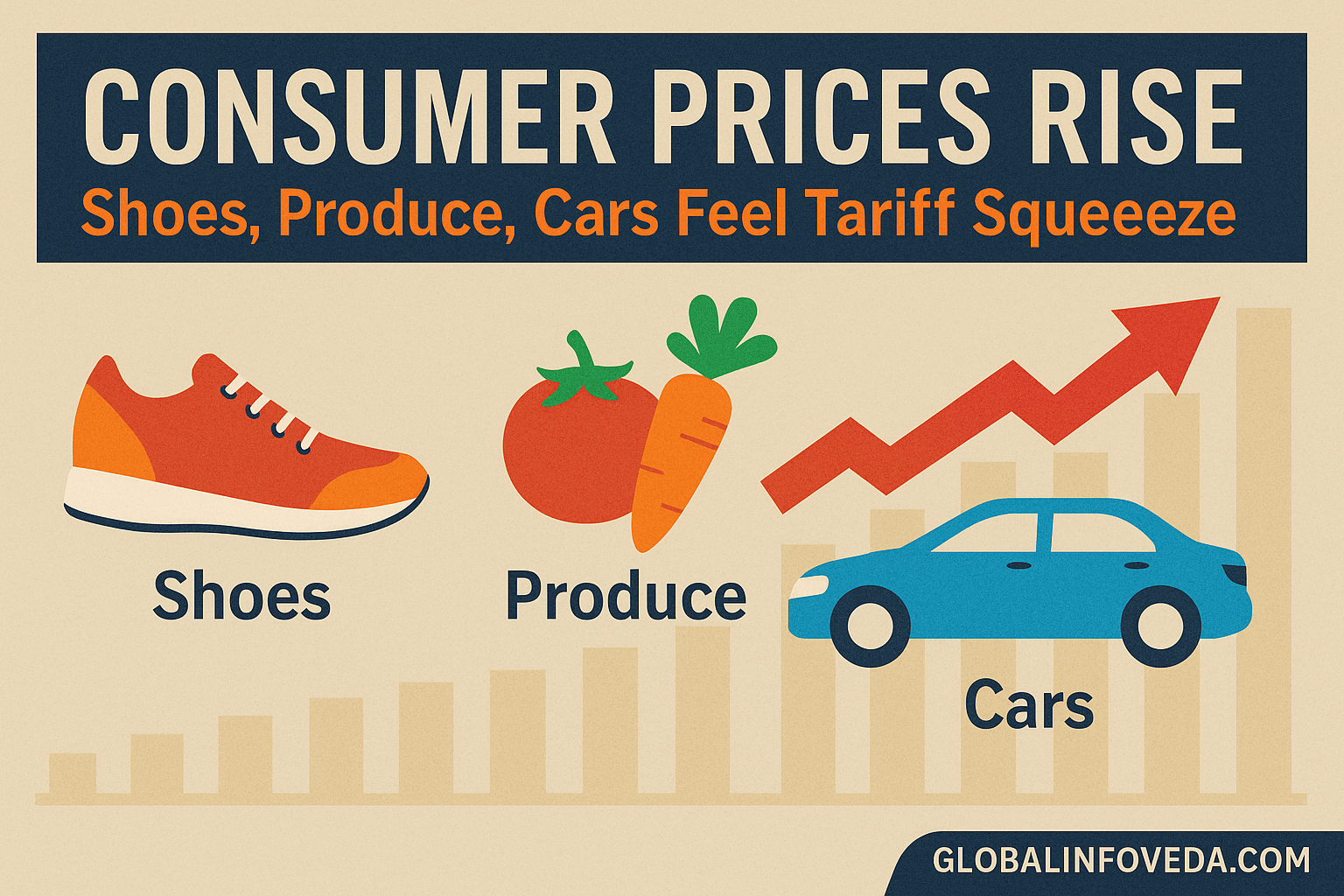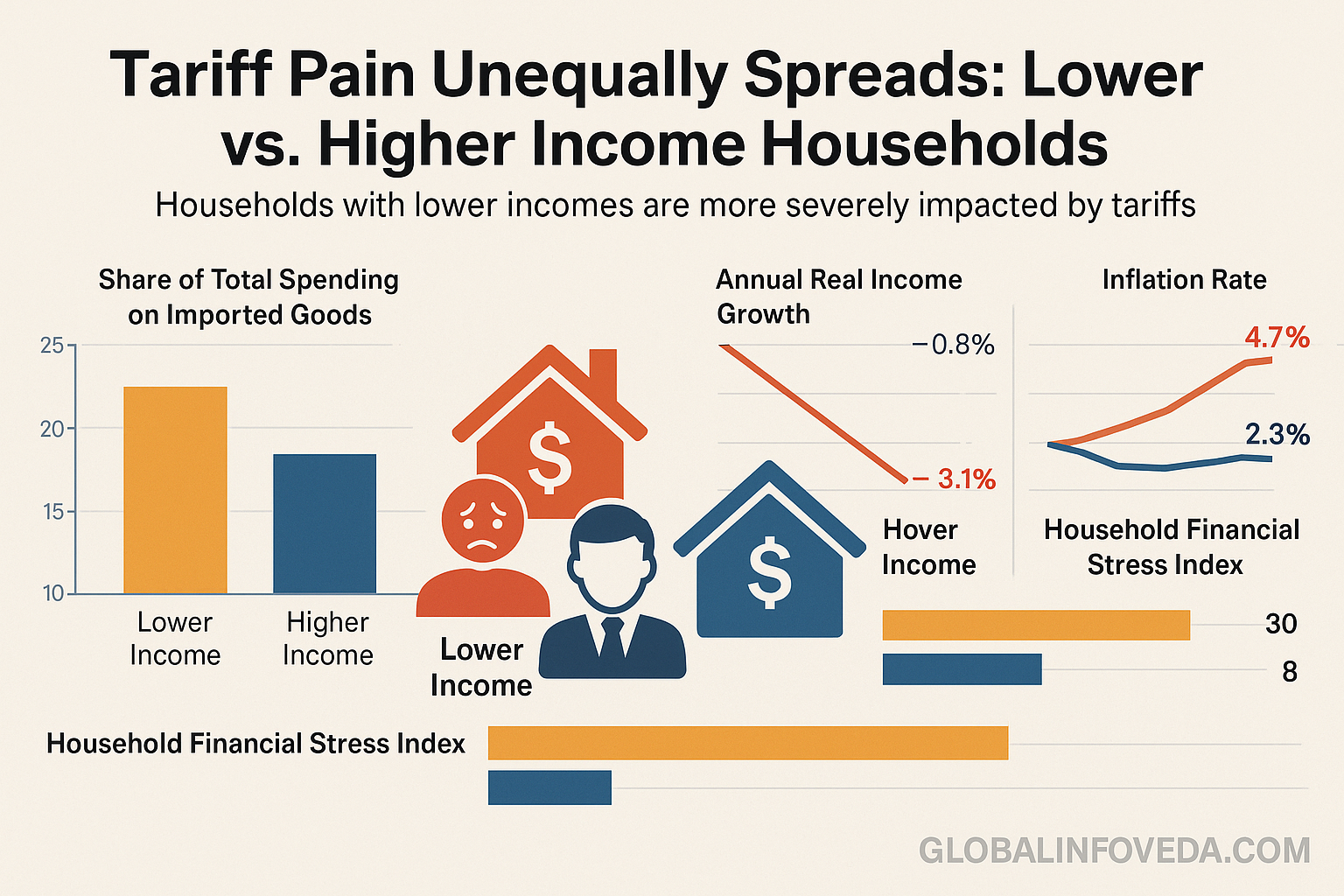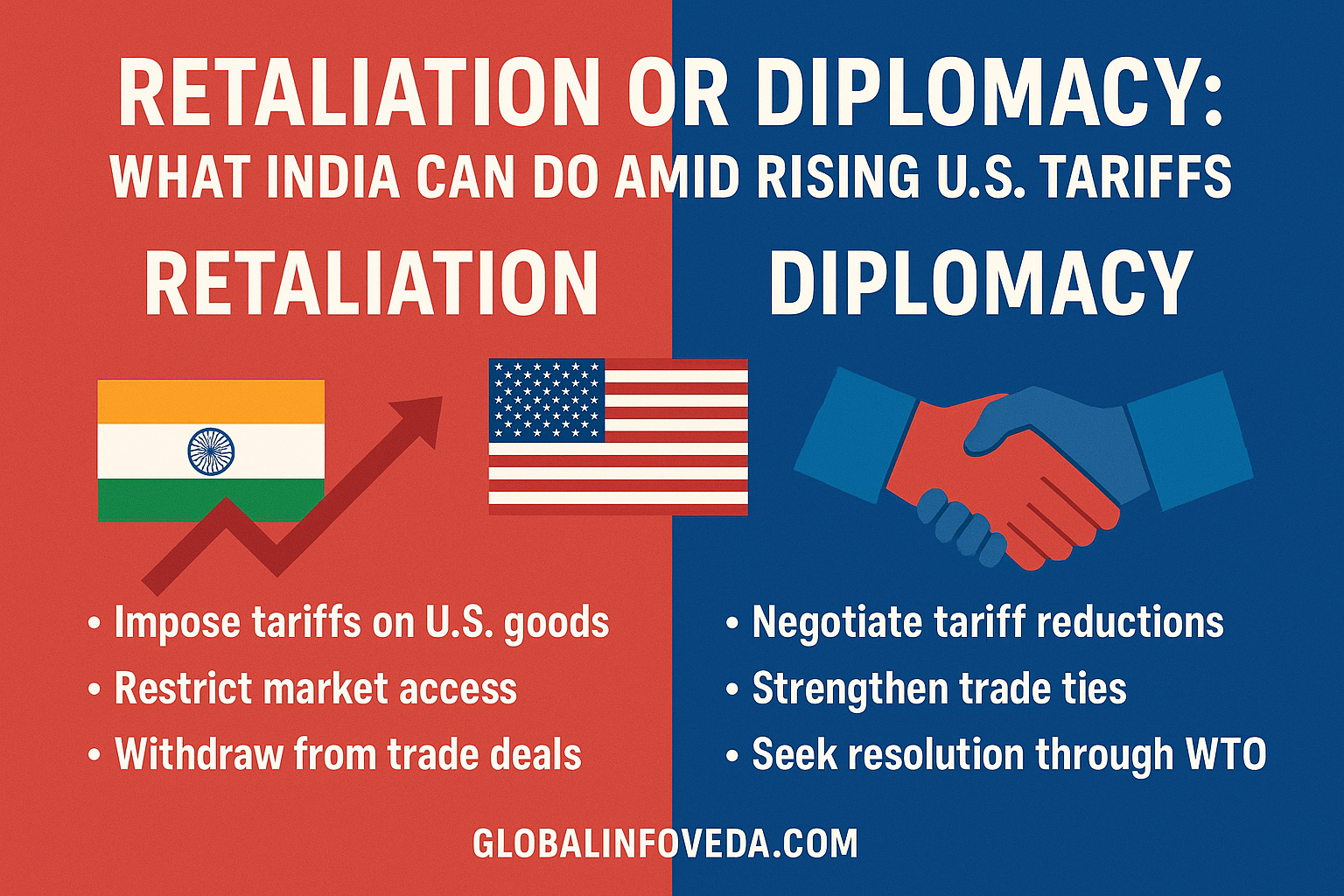⚖️ Introduction
So-called “Liberation Day” tariffs— the headline 25% duty layer slapped on India‑origin imports far and wide—have set off a tsunami of courtroom action across U.S. courts. Beneath the trade politics, the real battle is over the constitutional limits to statutory authority, and just how much discretion a President has to reset tariff schedules without a fresh Act of Congress. This long‑form explainer lays out the legal pathways, the likely standards of review, the historic precedents the courts will reconsider and the practical stakes for Indian exporters, U.S. retailers and global investors. That means a clean map of Section 232, Section 301 and IEEPA authorities, a discussion of the nondelegation question, the major questions doctrine, the operation of remedies, including preliminary injunctions, and litigants can marshal evidence of irreparable harm.
Meta description: Deep dive on constitutional limits surrounding “Liberation Day” tariffs—statutes, precedents, remedies, and strategy for exporters, retailers, and investors.
🧭 What courts will be asked to decide
The lawsuits circling “Liberation Day” tariffs aim to answer a cluster of questions that go to the heart of separation of powers:
- 🏛️ Did the executive act within statute? Whether the proclamation fits the text and structure of Section 232 (national security), Section 301 (unfair practices), or IEEPA (emergency powers) as actually invoked.
- 📜 Is the delegation constitutional? Whether Congress gave the President too much open‑ended discretion (the modern nondelegation worry) or whether the historical intelligible principle standard is satisfied.
- 🔍 How much deference applies? Whether courts should defer to executive national‑security judgments or read the law narrowly under major questions logic.
- 🧪 Was process followed? Whether statutory preconditions, consultations, and findings were made and recorded, and whether the administrative record can support them.
- 🧯 What relief is realistic? Whether plaintiffs can win a preliminary injunction or must wait through full merits; whether relief is nationwide or party‑specific.
Legal Showdown: Could ‘Liberation Day’ Tariffs Be Declared Unconstitutional?
🗺️ Where legal authority comes from
Courts will map the proclamation to one or more statutory hooks:
- 🛡️ Section 232 of the Trade Expansion Act: allows adjustments to imports when they “threaten to impair national security,” after a Commerce investigation and presidential action within defined time windows.
- 🧭 Section 301 of the Trade Act of 1974: authorizes measures to counter “unreasonable or discriminatory practices” burdening U.S. commerce, typically following a USTR investigation.
- 🚨 IEEPA (50 U.S.C. §§1701‑1707): permits the President to regulate transactions during a declared national emergency with respect to unusual and extraordinary foreign threats.
Each pathway has preconditions, procedural rails, and scope limits. Lawsuits often turn less on broad constitutional slogans and more on whether the government satisfied these granular steps and timelines.
🧩 How past precedents shape the fight
Several cases will loom large when judges weigh the claims:
- 📗 Algonquin (1976): The Supreme Court read Section 232 broadly, upholding the delegation and confirming oil import fees as an acceptable “adjustment.”
- 🧰 American Institute for International Steel (2019): The Federal Circuit rejected a nondelegation challenge to Section 232, citing Algonquin; the Supreme Court denied cert.
- 🔧 Transpacific Steel (2021): The Federal Circuit upheld a late‑stage increase on Turkey under Section 232; subsequent petitions didn’t change the outcome, leaving wide discretion intact.
- 🦅 Curtiss‑Wright (1936): Often cited for broad foreign‑affairs deference to the executive; litigants will debate its modern limits.
While none of these cases involved a cross‑the‑board “Liberation Day” theory aimed at India, the trendline has favoured executive latitude—unless a statute’s procedural guardrails were ignored.
🧮 Which statute fits “Liberation Day” the most
| Hook | Core threshold | Litigation risk |
|---|---|---|
| Section 232 | “Threaten to impair national security” with Commerce report + presidential action windows | High deference; process mis‑steps can still bite |
| Section 301 | “Unreasonable/discriminatory” burden on commerce; USTR investigation | Record sufficiency and remedy calibration contested |
| IEEPA | Declared national emergency tied to foreign threat | Courts scrutinise tailoring; sanctions‑like scope at issue |
🧱 The constitutional arguments likely to be briefed
This phase of litigation will surface a familiar set of constitutional themes applied to an unusual fact‑pattern:
- ⚖️ Nondelegation: challengers say Congress cannot hand the executive limitless power to tax; defenders cite Algonquin and specific statutory standards as the intelligible principle.
- 🧭 Major questions: challengers argue that sweeping tariff resets with macroeconomic impact require a clear congressional statement; defenders say Section 232/301 already supply it.
- 📜 Presentment & Origination: some will frame tariffs as taxes requiring House origination; courts usually treat them as duties authorized by statute.
- 🧪 Due process & APA: if agencies skipped required procedures, ignored comments, or failed to explain choices, courts may remand or vacate actions.
- 🕊️ Foreign affairs & national security deference: government emphasizes the need for speed; challengers argue deference cannot erase textual limits.
🧭 What plaintiffs must prove to get early relief
Courts apply a pragmatic four‑factor test for preliminary injunctions:
- ⚖️ Likelihood of success on statutory or constitutional claims.
- 💔 Irreparable harm: lost customers, shelf slots, and nonrecoverable compliance costs that money damages cannot fix.
- ⚖️ Balance of equities: whether pausing enforcement protects competition more than it harms policy.
- 🌍 Public interest: stability in supply, predictable trade compliance, and consistent application of law.
To win fast, plaintiffs need clean standing, tight affidavits, and evidence that harms are unavoidable under available workarounds.
🧰 Standing and who can sue
- 🛒 Retailers/importers: show direct duty outlays, compliance burdens, and supply disruptions.
- 🏭 Exporters/suppliers abroad**:** assert contract losses tied to U.S. entry barriers (standing hurdles are higher).
- 🧑🤝🧑 Trade associations: sue on behalf of members with classic associational standing.
- 🏙️ States or cities: claim fiscal and employment impacts where ports, logistics, or cluster jobs are concentrated.
- 🏢 Chambers/industry groups: combine datasets and “shopper mission” evidence to show the breadth of harm.
🧪 Evidence packs that persuade judges
- 📦 Purchase‑order trails showing cancellations and re‑quotes.
- 📈 Sell‑through and returns dashboards that capture real demand shocks.
- 🧭 Port dwell metrics, sailing windows, and forwarder affidavits.
- 🧾 HTS classification rulings and compliance costs line‑by‑line.
- 🧮 Cash‑flow models tying duty outlays to DSCR and covenant risk.
- 👥 Employee impacts and community affidavits from cluster towns.
🧠 Where challenges may stumble
- 🧷 Causation gaps if firms could mitigate via corridor diversification.
- ⏱️ Ripeness issues when agencies haven’t finalized specific enforcement steps.
- 🔍 Record deference when agencies papered findings and timelines sufficiently.
- 🧩 Remedy tailoring—courts hesitate to craft nationwide blocks absent clear statutory error.
🧭 Strategy map — importer and retailer coalition
- 🧰 Lead with facts: duty math by HS code, shelf lineup risk, and consumer price pass‑through.
- 🧪 Pick venues: CIT (Court of International Trade) for customs‑heavy claims; district courts for broader constitutional angles.
- 📚 Amicus support: economists on consumer impact, port authorities on logistics shock, unions on job risk.
- ⏳ Parallel tracks: administrative petitions for exclusions while litigation proceeds.
- 🧯 Interim agreements: duty‑sharing with suppliers while relief is pending.
Market Fallout: Trump’s Tariffs Send Rupee Weak, Shake Investor Sentiment
🧭 Strategy map — supplier and exporter coalition
- 🔭 Document alternatives: show steps taken to shift lanes to EU/GCC/ASEAN and why they cannot absorb volumes instantly.
- 🧪 Compliance depth: REACH, CE, and provenance files prove you are not dodging rules but seeking predictable application.
- 🧭 Affidavits from buyers: detail promo calendars, penalty clauses, and lost shelf weeks.
- 💳 Finance letters: explain how working‑capital lines and PCFC limits strain under new duty timing.
- 🧱 Community impacts: district‑level data for MSME towns where layoffs or shift cuts have begun.
How India Can Diversify After Trump Tariff Shock: ASEAN, EU, and Beyond
🧮 Which court hears what
| Forum | Primary focus | Why it matters |
|---|---|---|
| CIT (New York) | Customs law, tariff classification, protests | Judges steeped in trade; faster on technical issues |
| District courts | Constitutional claims, injunctions | Broader relief possibilities; varied deference postures |
| Federal Circuit | Appeals from CIT | Sets national trade‑law precedent |
🧾 The statutory rails in more detail — Section 232
The Department of Commerce investigates whether the amount or conditions of imports “threaten to impair national security.” It has to coordinate with Defense and other agencies and write a report. The President then selects an “adjustment” of imports — tariffs, quotas or fees — on timelines. Previous squabbles have revolved around whether later changes fell within that window or were in need of a new report, and whether tweaks to a specific product were adequately justified. Critics of “Liberation Day” will dig into whether the India scope was linked to any recorded security nexus or just policy re‑branding.
🧭 The statutory rails in more detail — Section 301
Section 301 allows the USTR to investigate (eg, into discriminatory taxes, barriers or IP theft), in response to which it proposes appropriate remedial action. Remedies may take the form of duty, fee or other restrictions, but the statute contemplates that the government will adjust its response and review it from time to time. That the fit between findings and remedy in a given case can be second-guessed — arguing, for example, that across‑the‑board tariffs sweep far beyond any documented practice, or that retaliation ceased to be “appropriate” once negotiations moved or conditions changed — is not contested.
🧯 The statutory rails in more detail — IEEPA
IEEPA springs to life when the president declares a national emergency centered on an unusual and extraordinary foreign threat. It authorizes the regulation of transactions, to block property and to prohibit — but courts tend to be timid when it comes to using them as a de facto tariff platform as opposed to targeted sanctions. Plaintiffs will argue that this stretches IEEPA beyond its lane; they’ll say that the government is going to contend that its enabled to make tariffs akin to transaction regulations that track with emergency aims. Tailoring and nexus will be the field of battle.
🧭 How nondelegation claims are framed today
Modern courts rarely strike down delegations outright, but litigants have sharpened the argument with fresh tools:
- 🔎 Indefinite standards: if “national security” or “unreasonable” is read without limits, challengers argue it becomes an empty vessel.
- 🧭 Major questions: where an agency claims power of “vast economic and political significance,” judges demand clear congressional authorization.
- 🧩 Temporal constraints: attempts to adjust measures outside statutory windows look like executive law‑making.
- 🧪 Remedy tailoring: penalties far afield from the documented problem suggest a lack of intelligible principle.
Defenders counter that Algonquin and recent Federal Circuit readings already answered these concerns for the trade context.
🧮 How remedies are tailored in successful suits
| Remedy type | Where likely | What it does |
|---|---|---|
| Preliminary injunction | District court on constitutional counts | Pauses enforcement for parties or more broadly |
| Remand without vacatur | CIT when process errors found | Sends back to agency while leaving measures in place |
| Vacatur | Rare in national‑security posture | Strikes action; appeals almost certain |
🧭 Evidence of harm that actually moves the needle
- 🕒 Promo calendar collisions and penalty clauses that can’t be re‑sequenced.
- 🧊 Cold‑chain risk where temperature loss destroys inventory value.
- 🧾 UPC and barcode resets that cause shelf loss beyond a season.
- 🧮 Gearing jumps from duty timing that trip debt covenants.
- 🧰 Right‑to‑repair limits preventing in‑market fixes and forcing returns.
🧪 Case file — apparel coalition in the CIT
An apparel coalition challenges at the CIT, on classification shifts and sudden increases in the duty on staples. They provide warehouse scans and size‑curve return data, and affidavits from buyers about cancelled capsules. The government is asserting that it gets to hide behind deference to national security. The judge directs expedited briefing on whether the Commerce report did in fact map risk to apparel, and whether deadlines were met. Partial relief is granted: some HS lines are remanded for further explanation; the others stay while it is appealed.
💎 Case file — jewellery challengers in district court
A jewelry group files suit in district court over big questions and due process. They show history of provenance systems, grading upgrades, and clean audit history to prove that they are not the policy target. The court that issued the order, wary of nationwide judicial decrees, rejects a blanket block but demands closely focused discovery into the executive’s record concerning the presence of India’s role. The mere risk of finding out pressure the administration to publish exclusion pathways soon and thus reduce pressure in the near‑term.
🧭 The deference debate after recent Supreme Court shifts
“The climate gets built around two currents: a contracting appetite for open‑ended delegations in areas of great economic significance, and a continued respect for the executive in foreign affairs,” he writes. Trade sits at the confluence. Plaintiffs will urge a text‑first approach and strict scrutiny; the government, historical practice, Algonquin and the exigency of speed in a fluid global world. How a court weighs these pulls will determine how far “Liberation Day” can extend without a new Act of Congress.
🧭 What victory looks like for each side
- 🏛️ Plaintiffs: time‑bound relief for vulnerable HS lines, clearer exclusions, and tighter procedural discipline; a signal that major questions logic restrains broad tariff proclamations.
- 🦅 Government: validation that statutory hooks were followed, with process fixes but no core rollback; a reaffirmation of foreign‑affairs deference.
- 🧑⚖️ Courts: an opinion that clarifies timelines, record sufficiency, and remedy scope without plunging the judiciary into day‑to‑day tariff‑setting.
🧭 Investor and boardroom implications
- 📉 Equity: valuation gaps widen between companies with documentation excellence and those without.
- 💱 FX: rupee ranges widen when duty layers extend; RBI leans on spot and swaps to smooth.
- 📈 Rates: term premia bake in imported inflation risk; curve shape is the tell.
- ⚙️ Operations: suppliers re‑engineer SKUs and pursue EU/GCC lanes as litigation clocks tick.
Impacts of Trump’s 25% India Tariff on Indian Export Sectors
🧭 Practical defenses while cases advance
- 🧰 Re‑quote kits showing duty‑inclusive ladders for buyers.
- 📦 Carton‑to‑shelf packaging to win EU/UK reliability points.
- 🧪 Evidence vaults with photos, AQL logs, and HTS rulings for customs.
- 🚢 Sailing windows locked; near‑port consolidation cuts dwell variance.
- 💳 PCFC + invoice discounting to compress order‑to‑cash during turbulence.
🧭 City‑by‑city lens in India
- 🧵 Tiruppur/Noida/Ludhiana: knit basics pivot to EU; water‑light dyeing and size‑curve mastery.
- 💎 Surat/Mumbai: split lab‑grown and natural flows; provenance QR in UK/GCC.
- 🐟 Kakinada/Vizag/Kochi: temperature telemetry for seafood; club packs for GCC.
- 🛠️ Pune/Nashik/Chennai: PPAP rigor, VMI, precision machining minutes for ASEAN/LatAm.
- 🧪 Ankleshwar/Vapi/Dahej: REACH discipline and batch stability for EU chemicals.
🧭 Media narratives vs court reality
News cycles compress complex law into slogans. In court, success turns on administrative records, findings, and timelines. Plaintiffs who pair compelling community harm with meticulous statutory critiques tend to win targeted relief faster than those who argue only from broad constitutional rhetoric. Precision beats posture.
🧭 Communication templates for investor calls
- 📣 “We filed for targeted relief and secured exclusions on X HS lines; remaining items under remand review.”
- 🧭 “FX cover at 60–70%; rollovers synced to BL and outturn.”
- 🧰 “EU/GCC orders at 20–30% of book with documentation cleared.”
- 📈 “Weekly dashboards on OTIF, claim %, and sell‑through while ranges remain wide.”
🧭 Risk dashboard for boards
| Risk | Signal | Action |
|---|---|---|
| Record gaps | Agency disclosures thin | FOIA, targeted discovery, amicus pressure |
| Timeline drift | Missed statutory windows | Motion practice focused on timing defects |
| Remedy overreach | Punishment untethered to findings | Calibrated vacatur or remand asks |
🧭 Advocacy map outside the courtroom
- 🧩 Congressional outreach: bipartisan concern over consumer costs.
- 🧪 Economist briefs: household‑impact modeling to inform relief.
- 🧭 Port/union testimony: logistics reliability as a public interest.
- 🧱 Small‑town stories: MSME layoffs and shift cuts in export clusters.
🧭 How exclusion processes typically evolve
Early exclusion programs are narrow and slow; pressure plus litigation prompts expansions, clearer criteria, and better interfaces. Prepare dossiers: product spec, supply risk if shifted, consumer price impact, and proof of non‑substitutability. Companies that arrive with full technical files and retailer endorsements clear faster.
🧭 What a settlement could look like
- 🔧 Sunset clock: staged rollback tied to negotiations or supply metrics.
- 🧰 Narrowed scope: carve‑outs for specific HS lines with thin capacity elsewhere.
- 🧪 Monitoring: periodic reporting; fast‑track exclusions when triggers met.
- 🧭 Reciprocal steps: partners commit to specific market‑access fixes.
🧭 Comparative view — why India is a hard target to maintain
| Feature | Implication for litigation | Policy pressure point |
|---|---|---|
| Systemic partner in pharma/IT | Courts weigh broad fallout in equities | Exclusion breadth and pace |
| Clustered MSMEs by district | Judges see local employment shocks | Evidence of irreparable harm |
| Trusted lanes into EU/GCC | Alternatives exist but not instant | Timeline arguments for relief |
🧭 Timeline of a typical challenge
- 🗓️ Week 1–2: complaint filed; request for temporary restraining order if urgent.
- 🗓️ Week 3–6: preliminary‑injunction briefing; amicus submissions.
- 🗓️ Week 7–10: hearing; partial relief or denial with expedited merits.
- 🗓️ Month 3–6: discovery (limited), remand orders, or settlement talks.
- 🗓️ Month 6–12: appeal to the Federal Circuit or continued district‑court merits.
🧭 My analysis — where arguments feel strongest today
Statutory rails are still the most promising attack lines. Whereas if the administrative record poorly maps onto the India‑specific findings, or timelines were stretched beyond textual windows, the courts have a well‑trodden path to remand for clearer explanation. Nondelegation head‑on is still an uphill climb following Algonquin, but major questions offers a narrower, text‑anchored way to insist on specificity when measures wield economy‑wide power. Which brings us to the most intelligent corporate attitude, namely, one of dual‑track: litigate for relief while at the same time hardening documentation and widening your EU/GCC/ASEAN lanes, so your business risk is not subject to being a supplicant to any docket.
Why Trump Imposed a 25% Tariff on India: Trade, Russia, and Penalties
📚 Sources
- U.S. Department of Commerce & USTR — statutory process references for Section 232 and Section 301 actions: https://www.commerce.gov and https://ustr.gov
- U.S. Code & IEEPA — emergency powers framework (50 U.S.C. §§1701‑1707): https://uscode.house.gov
- Supreme Court & Federal Circuit opinions — Algonquin (1976), Curtiss‑Wright (1936), American Institute for International Steel (2019), Transpacific Steel (2021): https://www.supremecourt.gov and https://cafc.uscourts.gov
- CRS (Congressional Research Service) — primers on Section 232/301, deference, and trade remedies: https://crsreports.congress.gov
🧠 Final insights
The courtroom struggle over “Liberation Day” tariffs is, in fact, a referendum on how much power a President can wield on trade policy, without going back to Congress. History tells us that courts are loath to kneecap foreign‑affairs discretion, but just as loath to bless process shortcuts. The narrowest, most probable result is neither a full green light nor a complete stop: anticipate tailor-made remands, expanded exceptions and painstakingly cabined rulings that emphasize timing, findings and record quality. Those businesses who have treated litigation as one tool in their war‑chest, while at the same time focusing on documentation excellence, duty-inclusive pricing and multi‑corridor sales, will weather the legal storm with the least damage and possibly emerge with buyer trust upgraded.
👉 Explore more insights at GlobalInfoVeda.com








